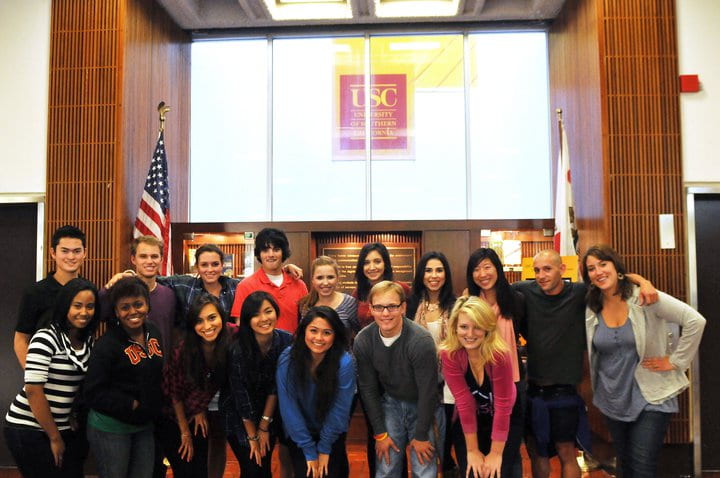The Communication Leadership Scholars is a group of unique and talented undergraduate students from the USC Annenberg School for Communication & Journalism. These students have demonstrated their capabilities in and out of the classroom by being a prime example of what the future of communications and journalism means. Led by Cynthia Martinez, the group has been conducting research during the 2010-2011 school year about the future of leadership and the skills that will be required of young adults in the future in order to reach success in the communication field.
Below is the innaugural post of the Communication Leadership Scholars, written by Ryan Blakemore, Senior.

On behalf of the 14 research assistants for the Center on Communication Leadership & Policy, welcome to our first blog post! As part of the inaugural entry, I will educate you on the research, seminars, and meaningful outcomes of our CLS studies so far.
The focus of the CLS Scholars during the academic year has been to recognize and catergorize emotional intelligence (EI): the ability to understand and manage moods and emotions in the self and others (Bar-On, 1997). EI a pertinent factor in relationships, especially peer and group interactions that occur on a daily basis, for example with co-workers, family, and friends. Through our research we have found that emotional intelligence is often measured in the workplace (Cavins, 2005; George, 2000; Scheusner, 2002), however, there is limited research on how to develop emotional intelligence among student leaders and how to foster EI in young adults.
Due to the lack of information and experimentation currently available to us, we have been conducting research seminars to develop emotional intelligence in student organization leaders at USC through a series of curricular and experimental learning exercises.
Recently, the CLS Scholars hosted a student seminar that centered on intrapersonal communication, and it was a great success. As part of the seminar, we explained to the student leaders what intrapersonal communication consisted of, and gave them examples of those interactions. Emphasizing that intrapersonal communication is about one’s self and that reflection, the CLS Scholars suggested that the student leaders take part in activities such as journaling. These activities have proven to be an excellent method to embrace one’s inner feelings and thus improve one’s emotional intelligence in the intrapersonal realm.
The majority of the session was used for a self – esteem building, use an experimental learning exercise, in which the participants were encouraged to think about what makes them unique and what they have in common with other organization leaders. The participation in these activities was overwhelmingly positive. And it was evident that our seminar was producing meaningful reflection in the student organization leaders.
We hope that with time and progressive reflection, our student organization leaders will be able to further their emotional intelligence and consequently be more equipped to contribute to our ever-changing society.
Now that I have given some insight on the research being done by the CLS Scholars, my own reflection may be helpful in analyzing the some of the techniques that we advocate. Though I served as a student organization leader while at USC, I had a very limited understanding of emotional intelligence was. When I became a part of the CLS Scholars and I spent time reading numerous studies done on EI, it is clear to me that emotional intelligence is a prevalent and important characteristic that all leaders, student and beyond, should strive for.
Before knowing what emotional intelligence was, I rarely took emotions into account during my daily interactions. However, the research and knowledge that I have amassed, along with my fellow CLS Scholars, has led me to look for emotional cues within my daily interactions with peers and constitutes. It has also brought me an understanding of my own EI, and how I need to be aware of my emotions in order to be an effective leader.
As a CLS Scholar, the process has been twice as exciting because I now have the opportunity to both learn new methods of developing emotional intelligence and also to teach these methods to student organization leaders at the same time.
Please check back on the CCLP blog for more posts from the CLS Scholars and the research that we will be continuing through the academic year. We will have more updates on our studies of EI and other leadership qualities from other members of our outstanding CLS Scholars!
-Ryan Blakemore (blakemor@usc.edu)
Communication and Comparative Literature, 2011